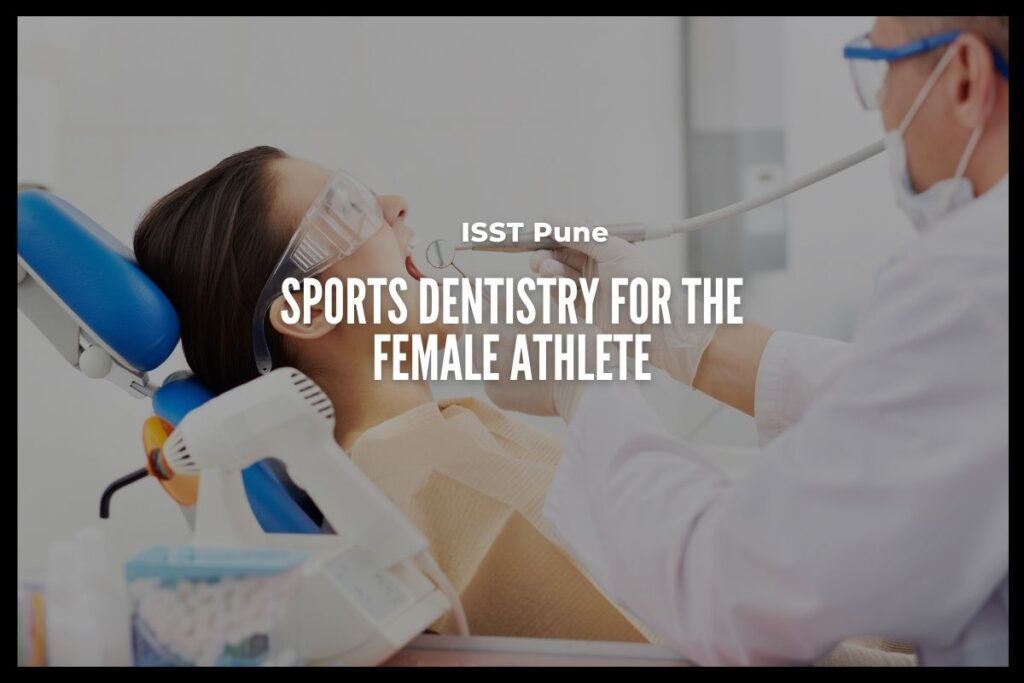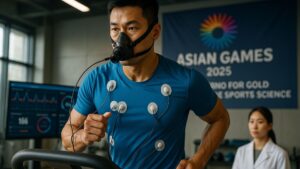Introduction: A woman has many cycles in her life right from childhood, puberty, pregnancy and
menopause and not to mention the social and cultural changes following marriage, looking
after kids and family, trying to keep a work-life balance! In addition, if you are an athlete,
there are many other factors that come into play that can lead to neglect of oral hygiene,
exercise-related factors and hormonal changes that can lead to various oral issues. Also,
with many female athletes participating more and more in contact sports or other
aggressive forms of sports, prevention by mouthguards and awareness regarding the
same becomes even more important. Thus, on the occasion of International Women’s
Day, let us try and understand the unique oral issues and dental care needs of female
athletes!
Dental injuries in female athletes VS male athletes
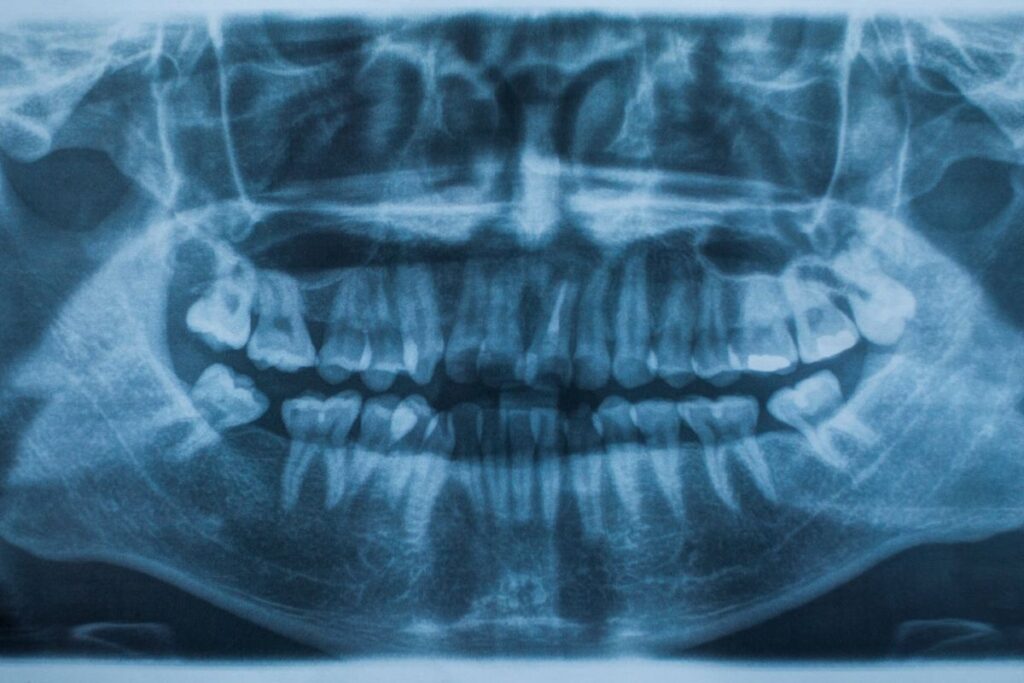
Results of many studies have indicated a significantly higher prevalence (1.5 times) of
sports-related dental injuries in male athletes than in female athletes. Sex differences in
sports injuries may be caused by a complex mix of intrinsic (e.g., biological differences,
physical strength, weight, and psychological characteristics) and playing environmental
factors (e.g., playing management including coaching styles). Young female athletes have
higher rates of sports dropout for reasons including the unfavourable coaching behaviour
(e.g., autocratic control/lower autonomy), while previous studies of athletes’ preferences
for coaching, leadership behaviours concluded that male athletes preferred a more
autocratic coaching style, such as more intensive training. Altogether, most findings
underscore that sports-related dental injuries are characteristically male-dominant, which
maybe based on sex differences in susceptibility to coaching styles.
Mouthguards essential for today’s female athletes
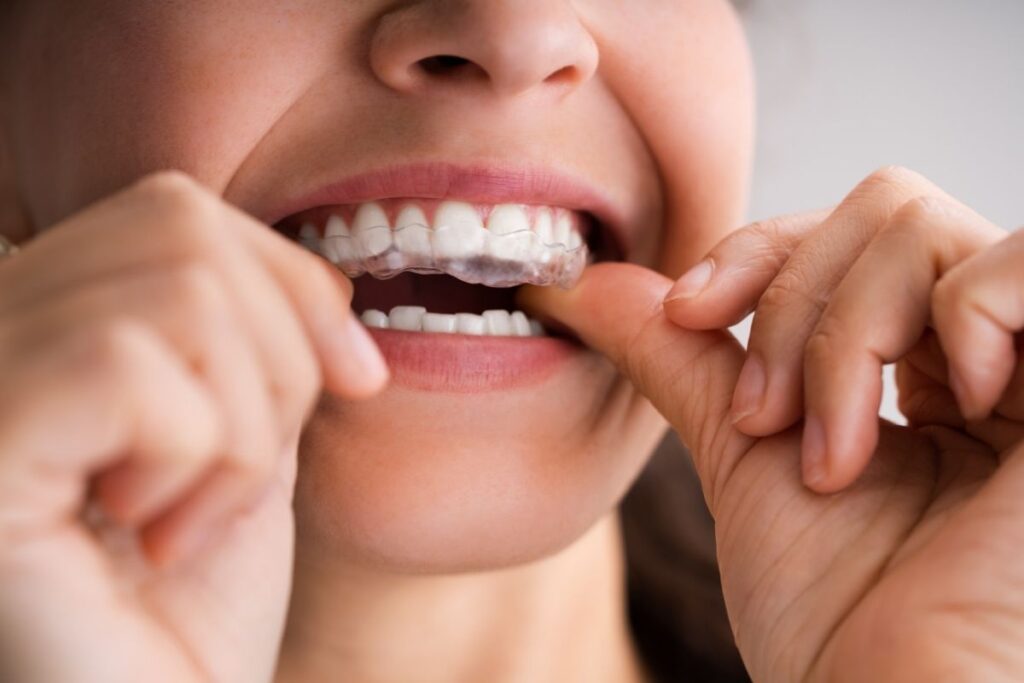
In spite of the difference in the injuries, it is now necessary that the female athletes show
concern for the protection of their teeth (esp. the upper front teeth which fall in the smile
line). “The level of competition in women’s sports has increased making it essential for
female athletes to wear properly fitted mouthguards”. said Dennis Ranalli, D.D.S.,
professor and chair, Department of Pediatric Dentistry at the University of Pittsburgh
School of Dental Medicine. “While male athletes have been the primary focus of
preventing face and mouth injuries, there is a great need to place the same emphasis on
prevention efforts for women athletes,” he stressed. “Female athletic participation has
increased and so have the strength and intensity levels of the participants.” Sometimes
there can be a gender bias because of the misconception that girls are less aggressive.
Female athletes are equally at high risk of getting dental injuries from high contact sports
and this fact should not be taken lightly by the parents and the coaches. According to
the latest research in sports dentistry, even in some non-contact sports like skating and
gymnastics (which have the majority of female participants), mouthguards will help protect the
athletes.
Young and adolescent female athlete and oral health
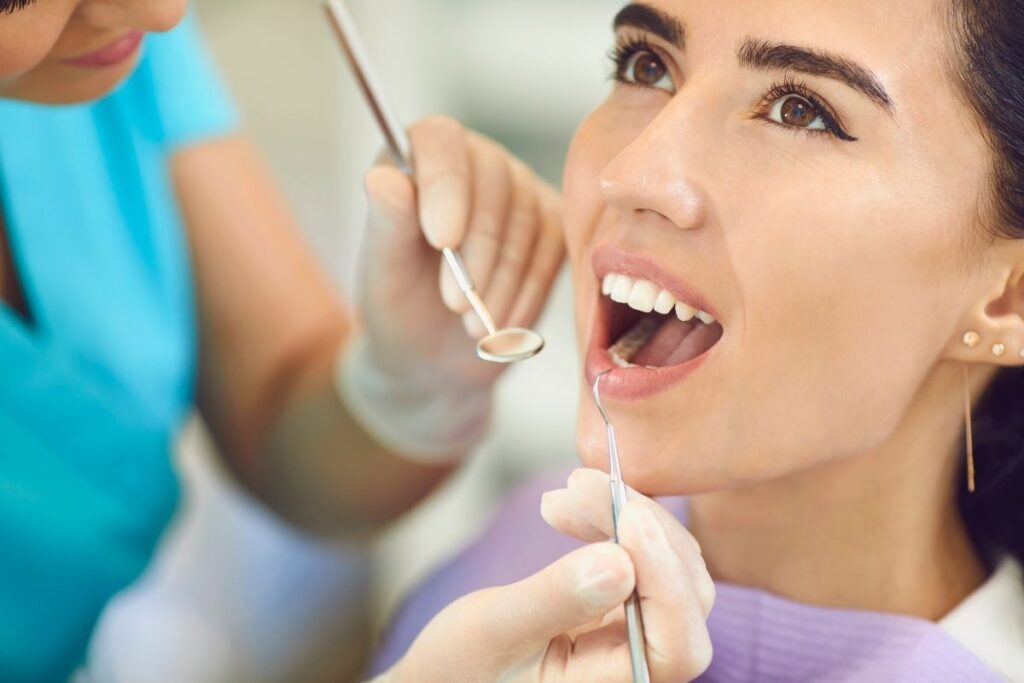
Younger athletes are more prone to consuming sweet and sticky foods. They are still
amateurs and don’t understand the importance of proper oral hygiene. Additionally, their
growth and exercise pattern demand a high consumption of carbohydrates with a greater
frequency which also is a high-risk factor for high caries rate along with hypo-salivation.
Adolescence refers to the period of accelerated biological growth, changes and social role
transitions that bridges the gap from childhood to adulthood. The definition of adolescence
has changed due to the accelerated onset of puberty, delayed timing of role transitions (e.g.,
completion of education, marriage, parenthood), and the effect of unprecedented social
forces such as social media. There are unique dental issues of female athletes like
potentially high caries rate, the tendency for poor oral hygiene, increased esthetic desire and
awareness, increased risk of pregnancy or sexually transmitted infections, eating disorders
or erratic eating habits and monthly menstrual cycle.
Hormonal levels go up and down throughout the menstrual cycle. During ovulation and a
few days before the start of a period, higher levels of the hormone progesterone may
cause swelling in the female athlete’s gums. The gums may be red and bleed more than
usual. The athlete may also get canker sores more often during the menstrual period.
Canker sores are small ulcers that have a white or grey base and a red border. Canker
sores are not the same thing as cold sores, which are caused by herpes simplex virus type
1 (HSV-1). Canker sores are inside the mouth. Herpes cold sores are on the mouth and
lips. One can’t pass canker sores to another person but can pass herpes cold sores to
another person. That is why, proper oral hygiene, not mixing up brushes or mouthguards
esp. during tournaments is very essential.
Female athlete triad, eating disorders and oral health
Eating disorders are can be more commonly seen in female athletes. In some female athletes,
there can be the severity of health issues called the female athlete triad. The female athlete triad
(Triad) refers to the interrelationships among energy availability, menstrual function and bone
mineral density, which may have clinical manifestations including eating disorders, functional
hypothalamic amenorrhea and osteoporosis. Sustained low energy availability, with or without
disordered eating, can impair health. Psychological problems associated with eating disorders
include low self-esteem, depression and anxiety disorders. Medical complications involve the
cardiovascular, endocrine, reproductive, skeletal, gastrointestinal, renal and central nervous
systems.
But from the dentist’s point of view, a most important thing to note is that the earliest
manifestations of abnormal eating patterns and disorders have been shown to appear in the
oral cavity first which include deterioration of oral aesthetics, discomfort and pain in oral and
perioral structures and impairment of oral functions. With the increase in numbers of these
conditions, the possibility of the sports dentist encountering an eating disordered female
athlete is quite high. Oral manifestations occurring in eating disorders are a result of metabolic
impairment induced by nutritional deficiencies. The other reasons for oral manifestations
include neglect of personal hygiene, modified dietary habits (cravings and excessive intake of
particular food articles, certain drugs) and unhealthy compensatory methods for weight
maintenance (such as induced vomiting).
Pregnant female athlete and oral health
Already there are issues of anaemia and calcium & Vitamin B12 deficiency in female
athletes. Thus, pregnancy has to be carefully planned by doing a prior medical as well as
dental checkup. Nutritional deficiencies in the female athlete can show oral symptoms and
should be noted immediately. Calcium deficiency for the female athletes during pregnancy can
set them up for osteoporosis as well as increased decay rate, higher teeth erosion and gum
disease in later life.
Physiologic changes during pregnancy may result in noticeable changes in the oral cavity.
These changes include pregnancy gingivitis, benign oral gingival lesions, tooth mobility,
tooth erosion, dental caries, and periodontitis (gum disease). It is important to reassure the
female athlete about these various changes to the gums and teeth during pregnancy and
to reinforce good oral health habits to keep the gums and teeth healthy. Dental and
obstetric teams can be influential in helping women athletes initiate and maintain oral
health care during pregnancy to improve lifelong oral hygiene habits and dietary behaviour
for women and their families. For example, women with poor oral health may harbour high
levels of Streptococcus mutans in their saliva. These bacteria can be transmitted to their
infants during common parenting behaviour, such as sharing spoons or licking pacifiers.
Senior female athletes and oral health
Menopause is physiological changes in women that give rise to adaptive changes at
both systemic and oral levels. As female athletes begin to reach an older age, dental health
and hygiene become a major concern. The dentist is often the first person to appreciate
numerous changes that are experienced throughout the body during menopause. The
teeth and gums are extremely susceptible to any hormonal changes that take place just
before menopause and readily decrease the body’s ability to fight off minor infections or
maintain a healthy balance of useful and harmful bacteria within the oral environment.
When estrogen and progesterone decrease in women experiencing menopause or the
time around menopause, they may experience peri-menopausal or menopausal dry
mouth. This is when the salivary glands may decrease in their production, and a woman’s
mouth could have a dry, cotton-filled sensation to it. This increases the chances of teeth
decay, erosion and infections. Senior female athletes can have a long history of dry mouth
and improper oral hygiene habits which increases their chances of developing a lot of
cavities in the mouth that could worsen if neglected over the period. Meticulous oral
hygiene supplemented by mouthwashes with chlorhexidine and daily use of artificial
salivary substitutes is important means to reduce xerostomia and decay in these athletes.
Enhanced severity of periodontal diseases with age has been related to the length of time
the periodontal tissues have been exposed to the dental-gingival bacterial plaque and is
considered to reflect the person’s cumulative oral history. Senior female athletes who often
have neglected their gum health in their younger days are highly prone to the development of
periodontal diseases and might need flap/gum surgeries.
Solution
The following things are recommended for the female athletes:
- Routine periodic dental check-ups (once in 6 months)
- Mouthguard fabrication as per the sport
- Getting preventive dental treatments done before major events
- Learning proper oral hygiene techniques
- Supplements to be taken for various phases of life to ensure better oral health
- Consultation with dentist, nutritionist and psychologist for various issues like pregnancy, eating disorders, diabetes, hypertension, menopause, etc.
If you are a female athlete or coach or the related person reading this, you can contact our faculty Sports Dentist Dr. Sneha Divekar on 9822910294 who runs a Sports Dentistry Centre and has good knowledge of Sports Nutrition. She can take the help of the Sports Nutritionist and plan/modify your diet and oral hygiene habits. If you are a dentist who is interested in sports dentistry and want to know more about our “Certificate in Sports Dentistry” course, you can contact us on 7972624645. We have included basic information on the oral health of various athletes as part of our Sports Dentistry program.

